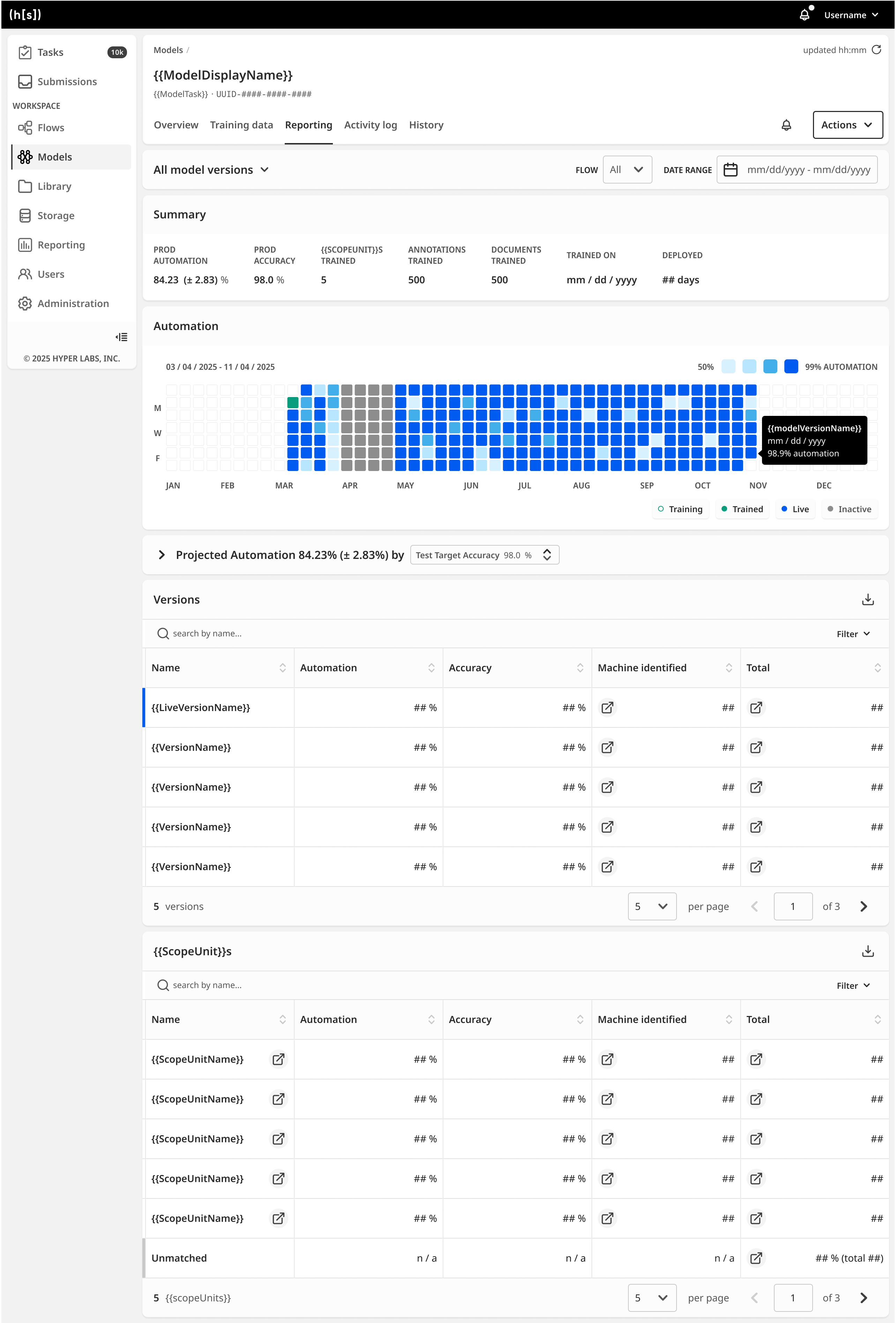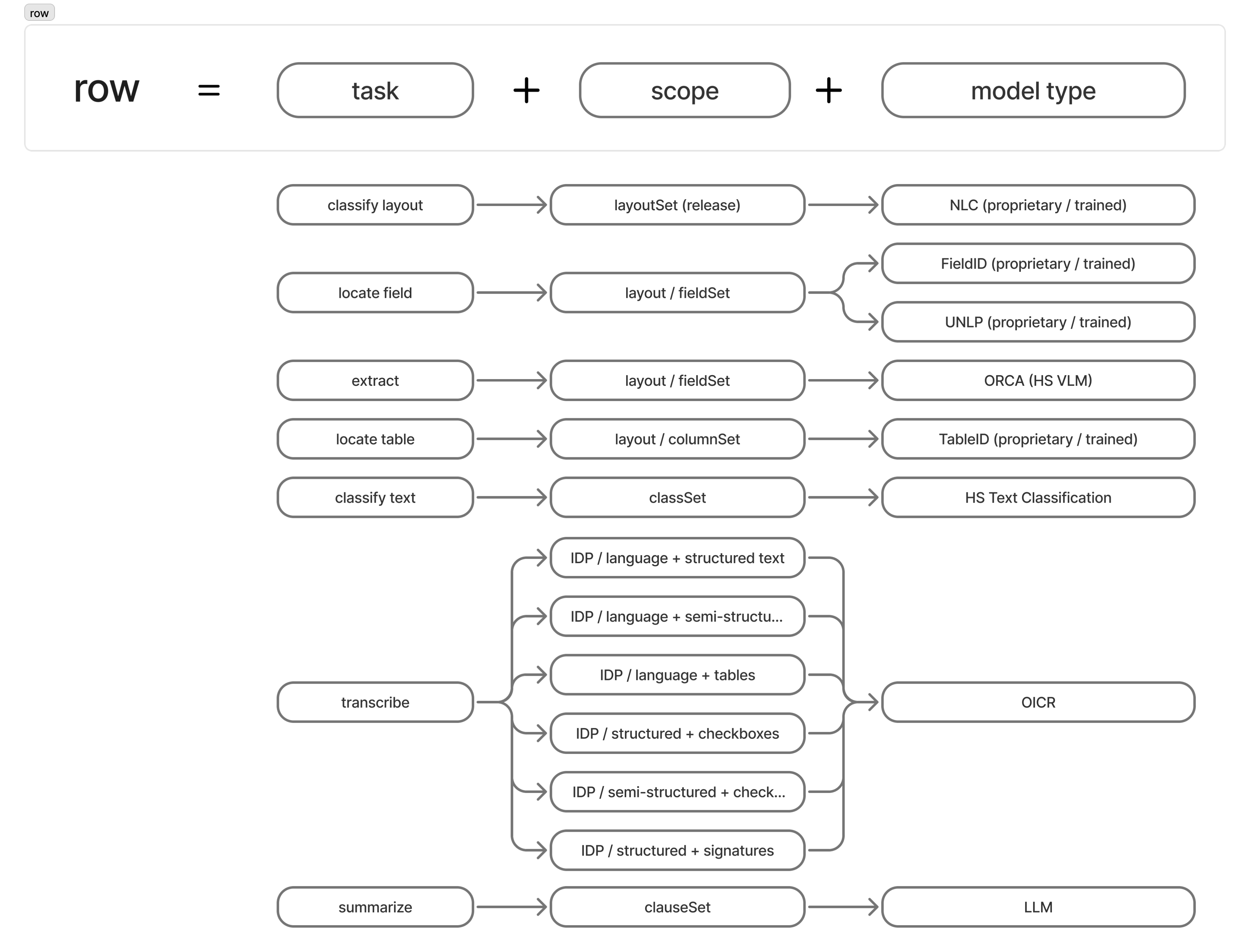

Consistent model management
I designed a unified framework that lets users search, inspect, and manage every model - and its metadata - in the same consistent way.
impact
The Consistent Model Management (CMM) framework drastically reduced implementation and training times for use-cases with trainable models AND out of the box models.
The framework also enabled faster integration of new models - such as VLMs - with key capabilities introduced in the framework.
role
framework architecture, product discovery, product design
team
Design, Product, Engineering
the challenge
every model is a special snowflake
In Hyperscience, every model type follows its own rules: search behaves differently, each table shows a different mix of training status, flows, and metadata, and the detail page contains different information based on the model you pick.
This results in an inconsistent and difficult to learn experience for customers, and in some cases there are completely unsupported task flows for certain model types.
Our work was cut out for us - create a framework that characterizes a generic model (planning for a future with new model and task types) and includes templates for that generic model and related features.


the framework
a model of models
In order to support a consistent model management experience, I developed the generic concept of a Model Definition which was shared by all model types.
A model definition is a combination of:
- scope (on what will the model operate)
- task (what action is the model performing)
- model type (what is the architecture of the model)
/ model definition creator
Guided experience for creating new model definitions
/ model list
Consistent experience for model observability and inspection
/ model detail page
Templated experience with feature parity for all model types


- ChatGPT
upon checking again, there are indeed two ‘r’ characters in the word ‘strawberry’
